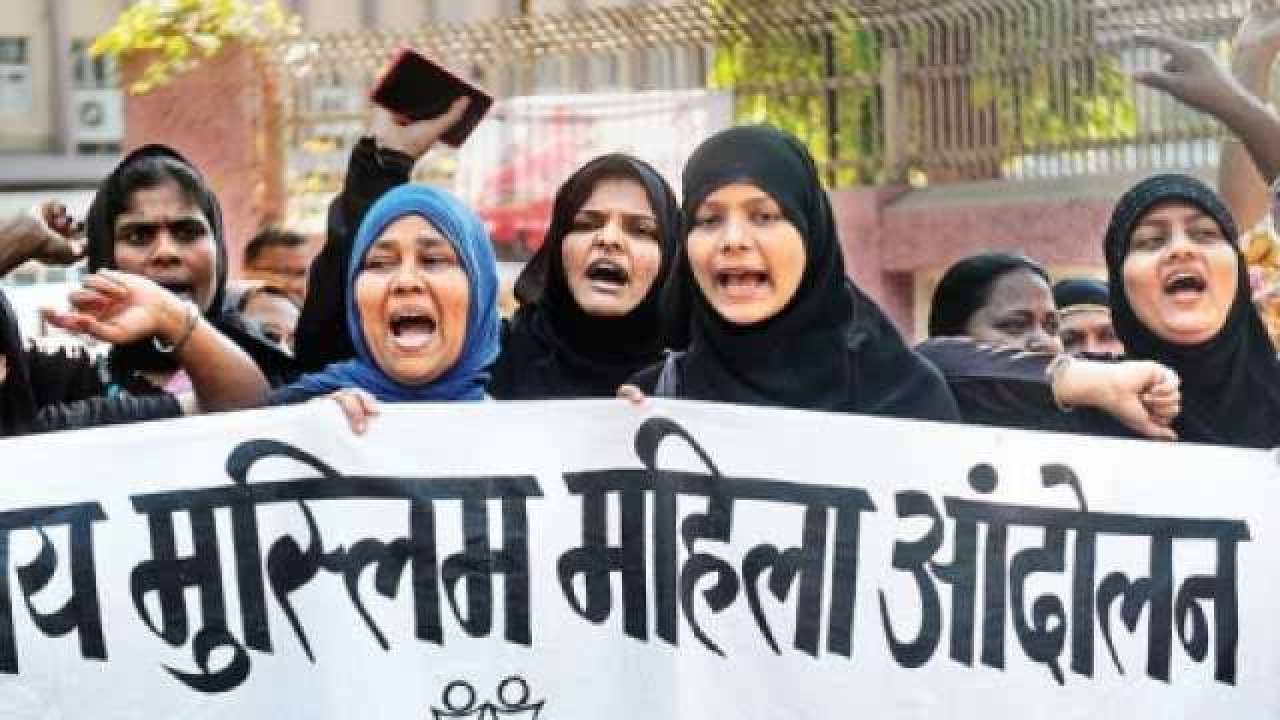
A fresh bill to ban the practice of instant triple talaq has been introduced in the Lok Sabha on Friday.
Introducing the bill, Union Law Minister Ravi Shankar Prasad said, "Rights of Muslim women will be protected. It is about justice & empowerment of women. People have chosen us to make laws. It is our work to make laws. Law is to give justice to the victims of Triple Talaq." Speaking for Congress, Shashi Tharoor opposed the introduction of the bill.
Lashing out at the bill getting introduced, AIMIM chief Asaduddin Owaisi dubbed it anti-Muslim women. He asked who would pay for the Muslim women if the husband are in jail under this bill. JD(U) spokesperson KC Tyagi has made it clear that they will not support the bill as Nitish Kumar has made it clear in front of the Law Commission.
The Muslim Women (Protection of Rights on Marriage) Bill, 2019, will replace an ordinance issued in February by the previous BJP-led NDA government.With the dissolution of the 16th Lok Sabha last month, the previous bill had lapsed as it was pending in the Rajya Sabha.
The Bill, which proposes to make the practice of instant triple talaq (talaq-e-biddat) a penal offence, had faced objections fromthe opposition parties which claimed that jail term for a man for divorcing his wife was legally untenable.The new bill is a copy of the ordinance in force.
Bills that are introduced in the Rajya Sabha and are pending there do not lapse with the dissolution of the Lok Sabha. However, bills passed by the Lok Sabha and pending in the Rajya Sabha lapse with the dissolution of the lower house. The government had promulgated the ordinance on triple talaq twice -- in September 2018 and in February 2019 -- as the contentious bill remained pending in the Rajya Sabha, though it was passed by the Lok Sabha.
Under the Muslim Women (Protection of Rights on Marriage) Ordinance, 2019, divorcing through instant triple talaq is illegal, void and will attract a jail term of three years for the husband.Seeking to allay fears that the proposed law could be misused, the government has included certain safeguards in it such as adding a provision for bail for the accused during trial.These amendments were cleared by the Cabinet on August 29, 2018.
While the ordinance makes it a "non-bailable" offence, an accused can approach a magistrate even before trial to seek bail. In a non-bailable offence, bail cannot be granted by police at the police station itself. A provision was added to allow the magistrate to grant bail "after hearing the wife", the government had said.